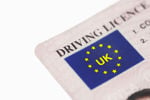Chancellor George Osborne’s first Budget contained a variety of measures that will have a direct impact on fleet running costs.
There are two significant changes to the tax system that will have the biggest impact – the rise in VAT and the change to capital allowances.
The rise in VAT from 17.5 to 20%, which comes into force on January 4, 2011, will impact fleets that lease their vehicles as well as those that buy them outright.
Companies that lease their vehicles can recover only 50% of the VAT on the finance element of the contract (i.e. not the maintenance if that is included). The BVRLA is currently petitioning HM Revenue and Customs to raise this to 70%.
Fleets that outright purchase their vehicles must now find the extra 2.5% in VAT to fund vehicle replacements. They will be unable to recover any of this extra cost if these vehicles are used privately by employees.
The VAT change will add an additional £315 to the cost of replacing a £15,000 car.
“This increase will accentuate the VAT benefits of leasing company cars, because companies purchasing cars cannot claim back any of the VAT on purchase where there is any element of private use,” said BVRLA chief executive John Lewis.
“Backed up by our research which suggested that 70% of company car mileage is business-related, we recently called on HMRC to increase this 50% VAT recovery rate. With VAT due to rise, this is now more relevant than ever.”
ACFO chairman Julie Jenner said the VAT change will force some fleets to act. “I would anticipate a ‘pull forward’ of orders to 2010 so that the higher VAT bills associated with the purchase of new cars are avoided,” she said, adding that the tax changes are likely to lead to fleets reviewing their vehicle funding strategies.
“Currently ACFO does not anticipate the collective changes to trigger any widespread favouring of company car purchasing, company car leasing, or any of the myriad of cash alternative options available,” Jenner said.
“However, it seems likely that there will be some marginal realignment of optimum funding/provision solutions depending on the individual circumstances of both employers and employees.”
Changes to the capital allowance tax system sees the rates that companies can claim back for the expense of buying a company vehicle reduced. This means it will take longer for them to recover these business expenses.
The “real killer”, said tax expert Alastair Kendrick, is the reduction of the rate down to 8%, which is likely to be applied to cars that emit more than 160g/km of CO2.
The cost of company cars that emit less than this benchmark can now be reclaimed at a rate of 18% down from 20% before the budget.
“This will mean leasing companies will be out of pocket,” said Kendrick.
“So fleets should expect an increase in costs.”
But Lewis said: “The reduction in capital allowances may have a marginal impact on headline lease rates, which could be offset by the reductions in the rate of Corporation Tax.
“The reduced allowances will make leasing even more attractive.”
Also adding to fleet costs is an increase in the insurance premium tax, which rises by 1%. This means fleet insurance premiums will attract a 6% tax.
”Increases in Insurance Premium Tax are worrying as they could lead to more uninsured drivers,” warned Edmund King, AA president.
“Car insurance premiums are rising very quickly as insurers struggle to replenish reserves depleted by underwriting losses. I believe we will see premium increases of up to 20% this year for the second year running.”
Companies struggling with rising fuel bills were given mixed news after the chancellor announced that fuel duty would not rise, but VAT would go up by 2.5%.
Fleets are still facing the previously announced rises in fuel duty, which will see the Government increase duty by 1p in October and a further 0.76p plus the extra VAT in January.
These increases will add an extra 4.6p per litre to fuel prices.
In many cases this VAT can be recovered, although banks, insurance companies and charities are among those organisations that cannot get the vast majority of VAT back.
The chancellor opted not to introduce a fuel stabiliser, yet although he did indicate that he is exploring how to bring stability to pump prices.
With petrol now averaging 118.1p a litre and diesel 120.9, the VAT rise and duty increases would push the pump price of petrol to a new record high of 122.93ppl and diesel to 125.43ppl.
The implications of the Emergency Budget for fleets
- VAT increase will push up costs for fleets that lease as they can recover only 50% of their VAT back
- The VAT increase will affect outright purchase fleets as they cannot claim any VAT back if the vehicles are driven for private use
- Insurance premium tax will add to costs for every fleet
- Capital allowance changes mean lease costs are likely to rise
- Capital allowance changes mean it now takes longer to recover the expense of purchasing a company vehicle
- VAT increase will have cash-flow implications for all fleets in terms of fuel costs
The implication of the VAT change
Dan Rees, company car tax expert at Deloitte explains how the VAT changes will affect fleets that lease vehicles
Current arrangements
If a fleet (assuming a fully VATable business) has entered into a lease then these will be more expensive. A monthly rental of £1,000 plus VAT currently costs £1,087.50 (half the VAT of £175 is recovered). However, in the new year the cost will be £1,100.
Arrangements in the new year
In the new year leasing a car from a VAT perspective should be more attractive. Currently the difference between buying and leasing is a VAT cost of 8.75% (zero recovery on buying against 8.75% recovery on a lease) however the VAT cost of buying against leasing will be 10%.
click here to read industry comments on the Emergency Budget

















adamrollins - 25/06/2010 09:50
VAT is the obvious, easy target for the chancellor. In business we all collect the tax for him. No political point to make here, it's just a fact. So, since the previous government's VAT reduction to 15% to "stimulate the economy" we are now collecting an extra 33% VAT for the current government. With such a significant increase, it becomes more important not to get caught out with incomplete records for HMRC in terms of VAT recovery. If company fleet records are not accurate and thorough, demonstrating the clear split between business and private miles, then VAT will fall due on legitimate business mileage that just has not been properly accounted for. Worse, if it is not possible to demonstrate the vehicle has been 100% utilised for business miles, what will the additional VAT implications be then? The only answer is to keep complete and accurate records of every journey. Complete mileage management. Systems like MIDAS-FMS can be very cheap to run, fully on-line and will actually cut the administration required for fuel expenses rather than add another layer of complicated processes. Make sure you get your records right to minimise the adverse aspects of the VAT changes!